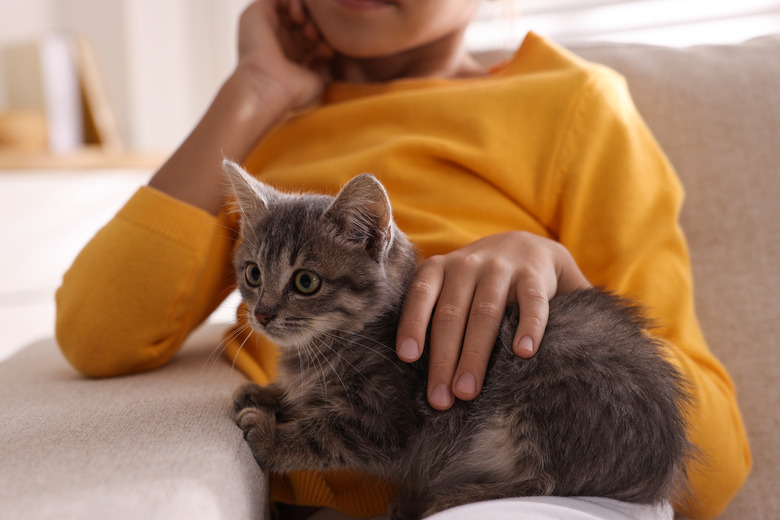About Rectal Bleeding In Cats
A few bright red blood droplets on the carpet or an unusually foul smell from the litter box may indicate that your cat is bleeding from their rectum. Of course, visible blood on the rectal area is an obvious sign of trouble. Don't rely on visual inspections alone, though, because some common causes of rectal bleeding aren't always apparent.
When you notice any traces of blood from your cat's rectum or in their feces, your cat could be suffering from a serious medical problem, such as polyps or a parasite in their digestive tract. At the first signs of rectal bleeding, you'll need to quickly get your feline to the veterinarian for a physical examination, diagnostic tests, and treatment.
Does my cat have rectal polyps and tumors?
Does my cat have rectal polyps and tumors?
Polyps or tumors near the end of your cat's digestive tract obstruct the passage of waste and may cause sporadic bleeding and blood in cat feces. Rectal polyps are generally benign, but these tiny nodules can lead to painful bowel movements and may lead to a prolapsed rectum if left untreated. Polyps can protrude visibly from the rectum or remain unseen inside your cat's gastrointestinal tract. The area around an affected cat's rectum is sensitive and bleeds easily when disturbed.
Veterinarians can check your cat for benign polyps and cancerous tumors with a physical examination and may recommend a biopsy if they detect unusual growths. Cancerous tumors often require chemotherapy or other aggressive treatment, while rectal polyps are removed with surgery.
Feline rectal prolapse
Feline rectal prolapse
Digestive diseases and cat constipation may force your feline to put extra strain on their rectal tissues when using the litter box. This pressure can force a portion of the lining of the intestines outward so that it's visible outside the rectum. Signs of this condition include a bloody rectal area or bloody feces.
Rectal prolapses are painful for kitties and should be evaluated by a veterinarian as soon as possible. Cat owners should not touch or try to fix a rectal prolapse on their own. Minor surgery is usually sufficient to fix minor prolapses, but severe cases require more extensive and invasive treatment.
Parasites in cats’ intestines
Parasites in cats' intestines
Worms and other parasites in the gastrointestinal tract may also be to blame for your cat's rectal bleeding or bloody feces. Hookworms and tapeworms latch on to the lining of the intestines to steal nutrients from your cat's blood. Untreated infestations can cause a life-threatening drop in blood supply in smaller animals. Felines with worms lose blood during defecation, which can make feces loose, bloody, mucousy, or black and tarry in appearance.
Protozoan parasites, like giardia and coccidia, can also lead to your cat bleeding from their rectum. Management strategies for parasites depends on the type and scope of infestation, so professional diagnostic tests are necessary to determine the underlying cause and appropriate treatment.
Physical trauma from a foreign body
Physical trauma from a foreign body
If your cat swallows a foreign body, like a needle or a chicken bone, it can be an excruciating problem. Such objects can tear through sensitive gastrointestinal tract tissues as they pass through the intestines and rectum. Bleeding often accompanies complete or partial tears, which is why you may notice your cat bleeding from their rectum. Your cat may also have constipation, experience painful defecation, or avoid the litter box entirely.
Bite and scratch wounds around the rectum can draw significant amounts of blood since the area has many veins and arteries that carry nutrients away from the intestines. These types of injuries may result in your cat bleeding from their rectum. Wounds around the rectum usually require minor surgery since the pressure of defecating can prevent them from closing naturally.
The bottom line
The bottom line
Any suspected blood in the feces (or urine, for that matter) is a pet health emergency requiring immediate attention from a veterinarian. A visit with your DVM is necessary to diagnose the underlying cause and implement appropriate treatment. Causes may include internal parasites, a physical injury, a rectal prolapse, or polyps.


